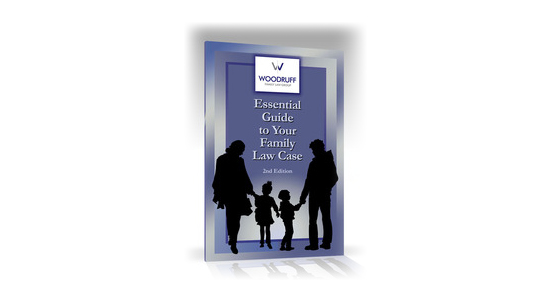Your Stimulus Money
One-Time Payments: What You Must Know for COVID-19
By Carolyn Woodruff, Family Law Specialist, CPA
So how do I get my stimulus check? There are two major issues for people going through divorce: (1) You are not living at the same address as you were when you filed your 2018 tax return; and (2) You filed that 2018 tax return jointly with your estranged. Quickly file your 2019 tax return today, so that the IRS has your new address and the number of children you are entitled to claim, particularly if your income is lower in 2019 than it was in 2018. While it is unknown if this will work, it is worth a try. (How many dependents you are entitled to claim can be tricky if you were not separated for all of 2019, and is beyond the scope of this article.) Also, banking pundits are predicting at least two more stimulus bills, so there could be more money to come. At a banking webinar I attended yesterday, the American Banking Association is encouraging IRS to provide an opportunity for consumers to submit/update their account information. If that happens, I will send an immediate update via a short article to this website and a link to the portal.
The IRS at the writing of this article plans to use your last filed return to determine where to send your stimulus check. The IRS wants to make electronic deposits, so if the IRS has your direct deposit ACH information that is where the stimulus money will go. If the IRS does not have your direct deposit ACH information, you will receive the check or perhaps a debit card more slowly, as the IRS is looking at ways to avoid sending paper checks as of this writing. The bottom line, if you filed jointly with your ex on your last filed return, then the check is going to be made out jointly. You will have to navigate those waters with your ex. Also, if the IRS has a joint bank account on record, that is where the money will go if you filed jointly. The IRS prefers to make this payment with an ACH. Call your estranged and discuss this.
It is expected that the IRS will send the first payments within three weeks of March 27, 2020, when the legislation passed.
Singles with adjusted gross income equal to or less than $75,000 will be eligible for up to $1200. Joint filers with adjusted gross income equal to or less than $150,000 will be eligible for up to $2400. There is $500 for each qualifying child.
The stimulus payment will phase out if your income exceeds $75,000 as a single person ($150,000 for a joint filer). Between $75,000 and $99,000, the payment amount is reduced pro-rata. There will be no payments to individuals making more than $99,000. These numbers double for joint filers.
You do not have to apply to get the check. If you have filed a federal income tax return in the last two years, you will automatically get a check.
The amount of your stimulus check is NOT taxable income to you, and that is good news.
I will have a further article on other provisions of CARES that may be of help to you, and I’ll place it on woodrufflawfirm.com. Click on the header COVID 19.









